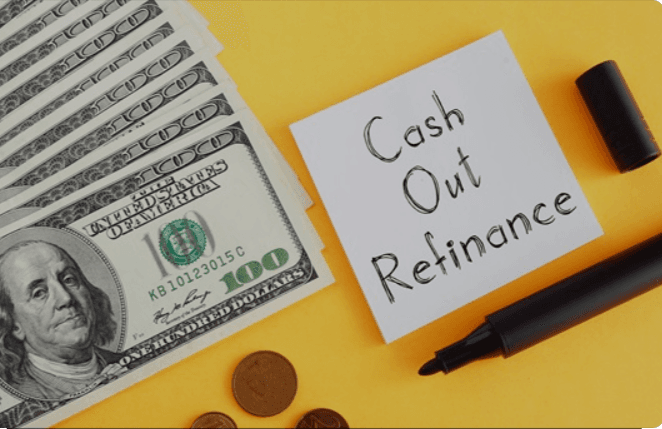“Mastering Commercial Cash-Out Refinance: Your Key to Financial Flexibility”
Unlock your financial potential! Discover how a cash-out refinance can turn your equity into smart funding, helping you tackle expenses and invest in your future.

For many property owners, especially those managing commercial real estate, the journey of building wealth through property can be enhanced through a cash-out refinance. This financial tool offers flexibility and can be a strategic move to unlock the equity you've built in your property. Understanding how to master a commercial cash-out refinance can empower you to take control of your finances and invest in your future.
To start, let's clarify what a cash-out refinance entails. It is a process where you refinance your existing mortgage for a higher amount than you currently owe. The difference between the new loan and the old loan is given to you in cash. This allows you to tap into your property's equity, which can be used for various purposes, such as funding new investments, renovating your property, or consolidating debt.
One of the primary motivations behind a cash-out refinance is to gain financial flexibility. By accessing cash without having to sell your property, you can fund other investments or cover significant expenses. This strategy can be especially beneficial in a thriving market where the value of your commercial real estate has appreciated. You might find that your property is worth significantly more than it was when you first purchased it, creating an excellent opportunity to capitalize on that increase in value.
When considering a cash-out refinance, it’s important to evaluate your current financial situation. Look at your existing mortgage terms, interest rates, and how much equity you have in your property. Equity is calculated by taking the current market value of your property and subtracting the remaining mortgage balance. A significant amount of equity can provide you with more options and better terms for your new loan.
Another element to consider is your creditworthiness. Lenders will assess your credit score, income, and overall financial health before approving a cash-out refinance. A strong credit score can help you secure more favorable terms, including lower interest rates and reduced fees. If your credit score is not where you want it to be, you may want to explore ways to improve it before applying for a refinance.
The purpose for which you plan to use the cash from a refinance can also play a significant role in your decision-making process. For instance, if you plan to invest in another property, this can be a strategic way to leverage your existing asset. Real estate investments can yield substantial returns, especially in commercial sectors like multi-family housing, retail, or office spaces.
Renovating your current property with the cash obtained from a refinance may improve its value, making it more attractive to tenants or buyers. Upgrades to facilities, aesthetic improvements, or essential repairs are all ways to enhance property value. If your property is in need of an upgrade, this could be a perfect opportunity to not only improve its appeal but also boost your rental income or resale value.
Another common reason for pursuing a cash-out refinance is debt consolidation. If you have high-interest loans or credit card debt, consolidating those debts into your commercial mortgage can simplify your payments and potentially lower your interest rate. This can free up cash flow, allowing you to invest in other opportunities or save for future goals.
However, it's crucial to approach cash-out refinancing with a solid plan. You should have a clear understanding of your financial goals and how this refinance fits into them. Speak with a skilled mortgage loan officer who can walk you through the benefits and potential pitfalls associated with cash-out refinancing. They can help you analyze your financial situation, clarify your goals, and decide the best course of action for your specific needs.
The process of applying for a cash-out refinance typically involves several steps. First, you will need to gather necessary documentation, including your business financial statements, tax returns, and information about your current mortgage. Next, the lender will conduct an appraisal of your property to determine its current market value. This step is essential as it impacts how much equity you can access.
Once your application is submitted, and if approved, you will close on the loan. It's important to carefully review all terms and conditions presented by the lender. Understanding the implications of the new loan terms, including the new interest rate and payment schedule, is vital to ensuring that this decision aligns with your long-term financial strategy.
While cash-out refinancing can offer many benefits, it is not without its risks. It is essential to understand that you are increasing your debt by refinancing for a higher amount. This can affect your cash flow, especially if the property’s income does not meet your expectations. It is advisable to create a budget and project future income to ensure that you can comfortably manage the new mortgage payments.
As you navigate the complexities of a cash-out refinance, remember that you do not have to do it alone. Engaging with a knowledgeable mortgage loan officer can provide you with the insights and support you need to make informed decisions. They can guide you through the entire process, helping you assess your options and choose the best path forward based on your unique financial situation and goals.
If you're considering a cash-out refinance and want to explore how it can work for you, we encourage you to reach out. Let BRIC help you unlock the potential of your commercial property and achieve the financial flexibility you deserve.